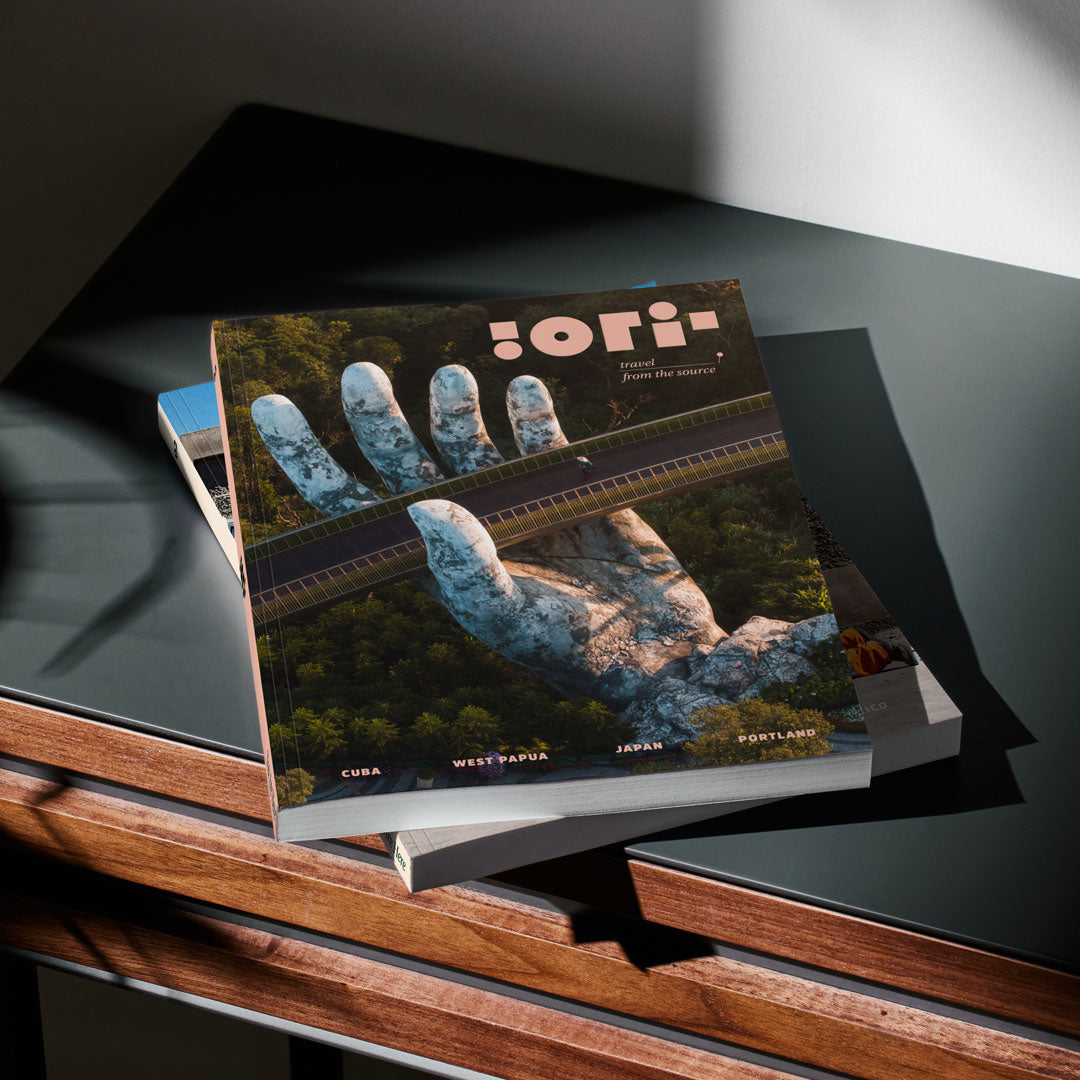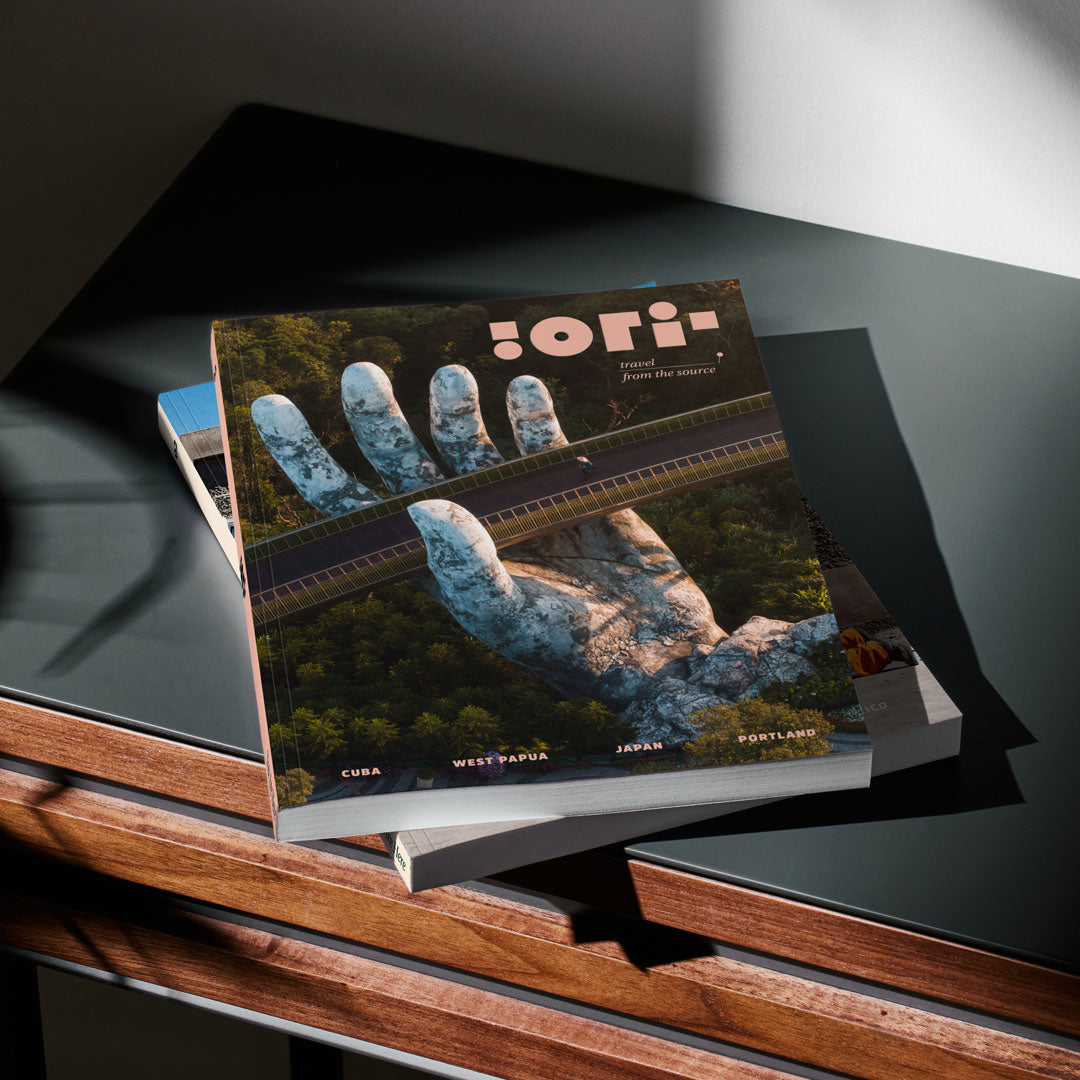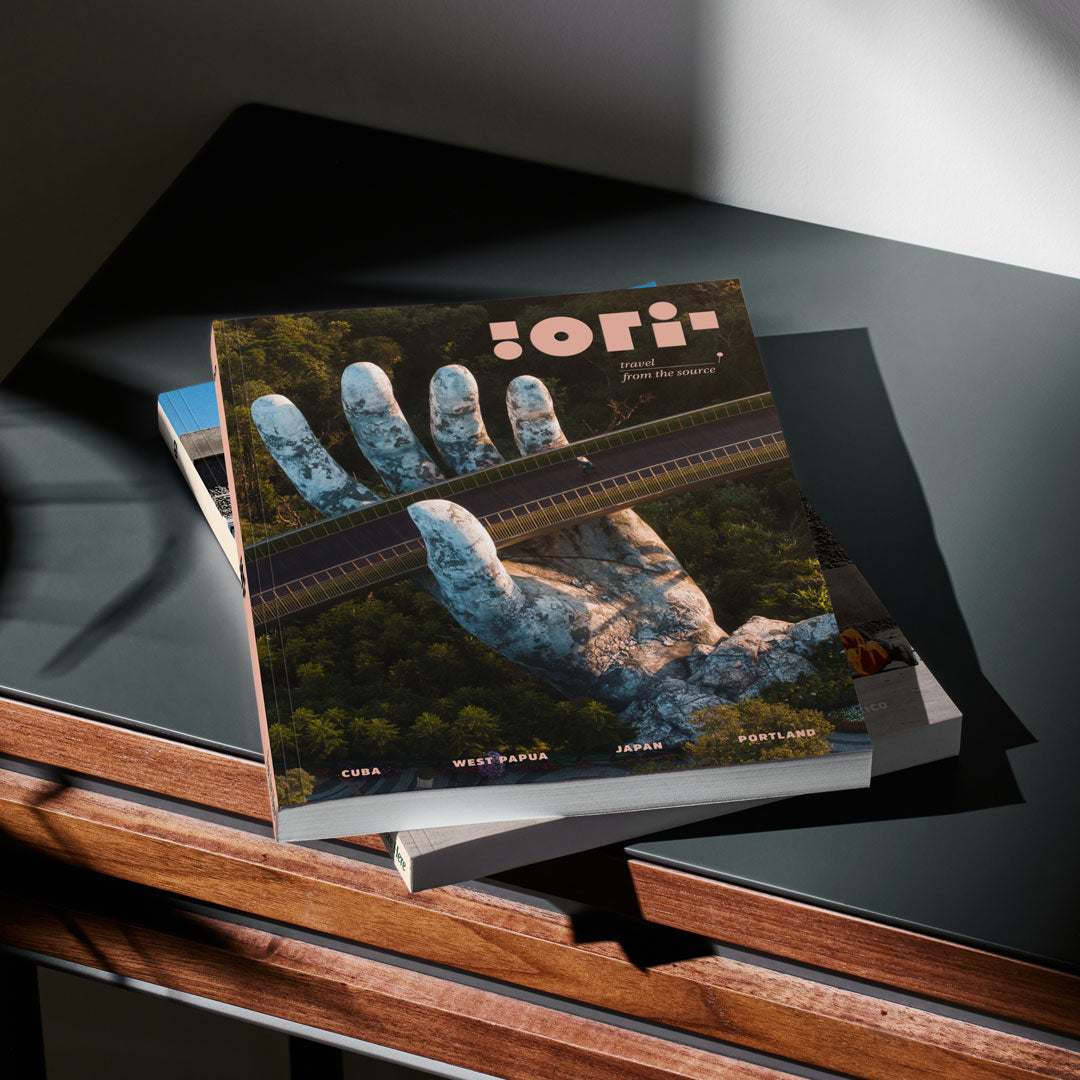Declaración de Inteligencia Artificial
El compromiso de la revista Ori con la autenticidad y la creatividad humana
En Ori Magazine, estamos profundamente comprometidos con los principios de transparencia y autenticidad en todo nuestro trabajo publicado. En una era donde la línea entre el contenido generado por humanos y el generado por máquinas es cada vez más difusa, Ori mantiene una postura clara y firme: nuestra publicación existe para celebrar y mostrar la creatividad única de los colaboradores humanos.
Para garantizar este compromiso, Ori divulgará cualquier uso de IA generativa en cualquiera de nuestros materiales publicados, incluyendo, entre otros, nuestro sitio web, boletines informativos y revista impresa. Esta transparencia es crucial para mantener la confianza y la integridad que compartimos con nuestros lectores y colaboradores. Creemos que la claridad sobre el origen del contenido que producimos es esencial para preservar la autenticidad que valora nuestra audiencia.
Ori Magazine no alterará, reemplazará ni generará obras utilizando IA para reemplazar el talento creativo de nuestros colaboradores, entre ellos escritores, fotógrafos, ilustradores y artistas. Creemos que la originalidad, la emoción y la perspectiva que los creadores humanos aportan a su trabajo no pueden ser replicadas por la IA. Por lo tanto, nos comprometemos a garantizar que todo el contenido creativo publicado en Ori Magazine sea fruto de la imaginación y el esfuerzo humanos.
A cambio, Ori no aceptará trabajos ni envíos que hayan sido producidos o alterados significativamente mediante IA generativa. Nuestra publicación impresa es, y seguirá siendo, una plataforma dedicada a honrar y celebrar el valor irremplazable de la creatividad humana. Mantenemos este compromiso firme y nos aseguraremos de que Ori siga siendo un referente de originalidad y expresión artística mientras sigamos publicando revistas.
Mediante estas directrices, Ori Magazine reafirma su compromiso de fomentar una comunidad creativa que valora la transparencia, la autenticidad y el espíritu humano. Creemos que el arte y la creatividad son actividades profundamente humanas, y nos enorgullece ofrecer un espacio donde esta verdad se reconoce y se defiende.
Esta declaración ampliada enfatiza el compromiso de Ori Magazine con la transparencia, la creatividad humana y la importancia de mantener la autenticidad frente a las tecnologías de inteligencia artificial emergentes.
Para cualquier duda o claridad por favor póngase en contacto con nosotros.
- Equipo editorial de Ori
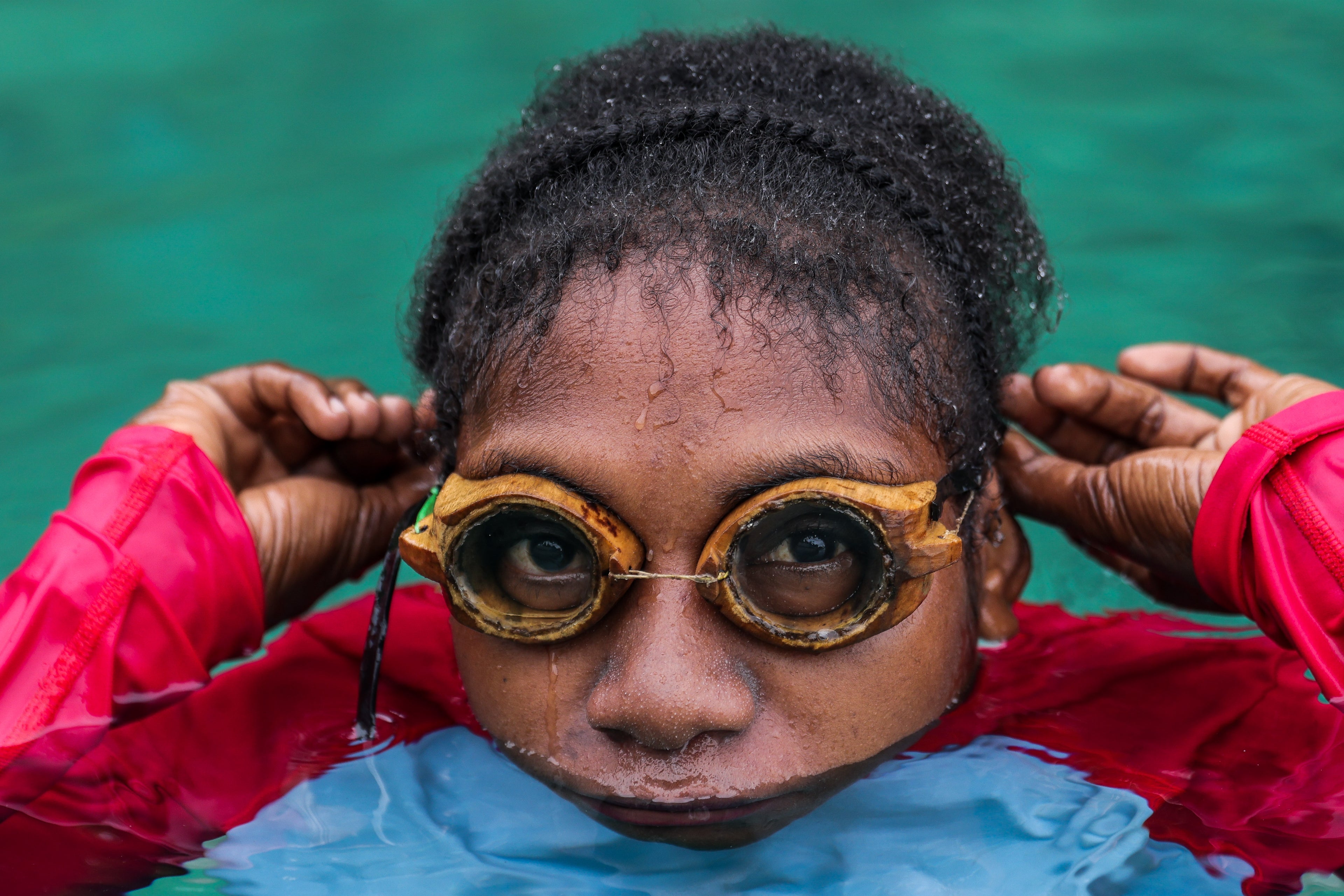
Lo que sigue es un extracto del artículo del ganador de la Beca Creativa Ori número 02.
Palabras de Fadiyah Alaidrus
Fotografías de Garry Lotulung
Yolanda Olivia Kacili sintió la emoción crecer en su interior. Lo que empezó como un aleteo familiar se expandió hacia arriba, asentándose justo detrás de sus orejas. A sus 22 años, llevaba más de una década esperando este día, cuando empezó a sumergirse en las aguas azul eléctrico de su hogar en Papúa Occidental. Hoy era diferente. Hoy buceaba para su familia y amigos en Kampung Kapatcol, un micropueblo en las islas Raja Ampat de Indonesia.
Sonrió mientras el pequeño grupo a su alrededor vitoreaba. Otros cuatro aldeanos estaban sentados en su pequeño bote de madera, incluyendo a dos mujeres de Waifuna, la organización revolucionaria liderada por mujeres que supervisa estas aguas. Fue un viaje de unos 30 minutos desde tierra en busca de aguas tranquilas, el lugar ideal para que Yolanda hiciera lo que mejor sabía hacer.
Con su camiseta roja y blanca de manga larga y pantalones cortos negros de fútbol, Yolanda se zambulló en la bahía turquesa, que reflejaba los verdes y frondosos árboles de la isla cercana. Utilizando herramientas de buceo tradicionales de madera, Yolanda descendió flotando más de seis metros con calculada facilidad.
Arriba, era imposible mantener la estabilidad del barco, pues las olas golpeaban las bordas desde todos los ángulos. El conductor maniobraba el barco en pequeños círculos, dando vueltas para evitar el oleaje que podría volcar su embarcación.
Aproximadamente un minuto después de sumergirse, Yolanda emergió del mar, todavía sonriendo. Esta vez traía un botín de pepinos de mar y langostas, la mejor pesca de esta costa, metiéndolos en una bolsa que sostenían dos mujeres a bordo. Luego, tan rápido como había salido a la superficie, desapareció de nuevo.
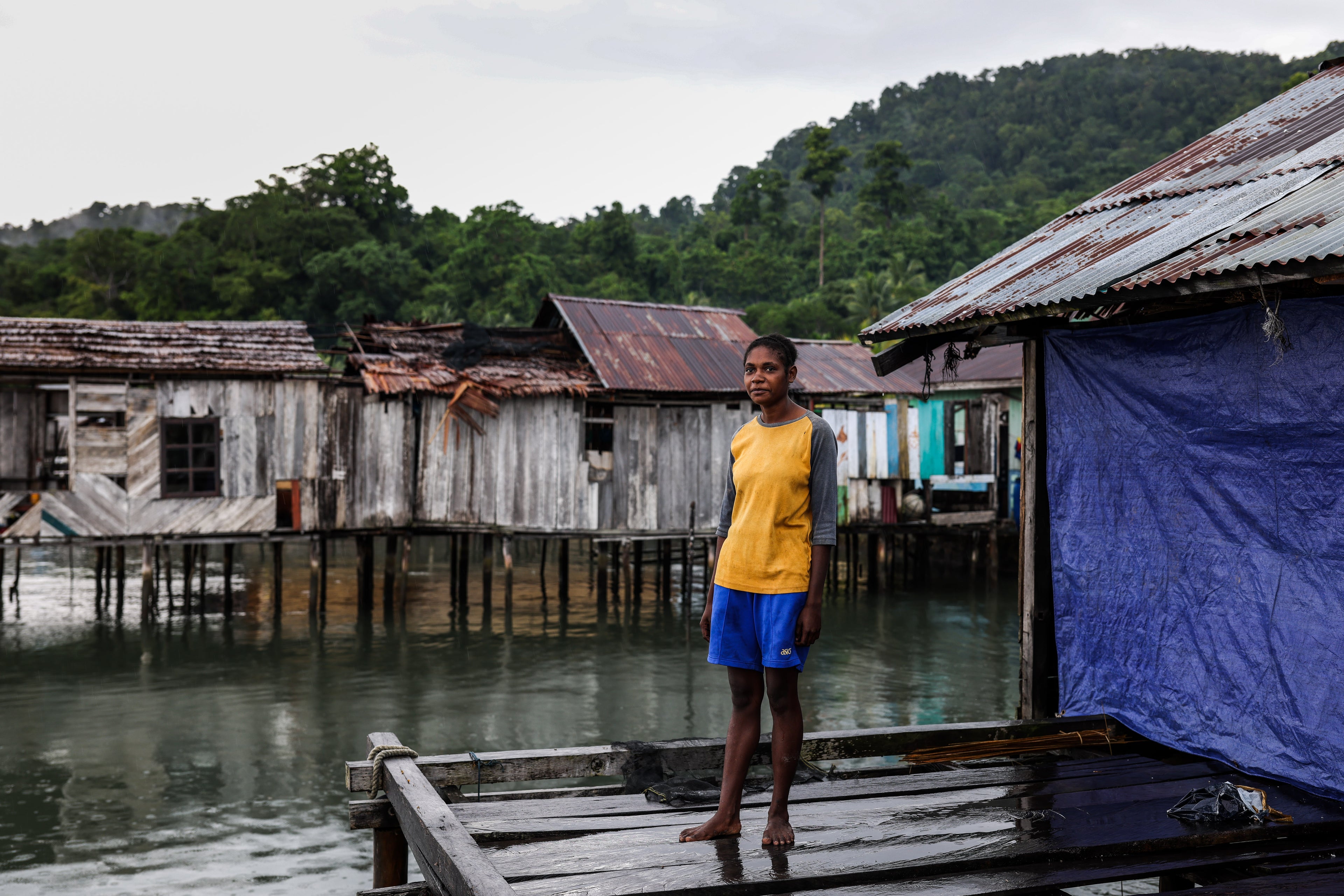
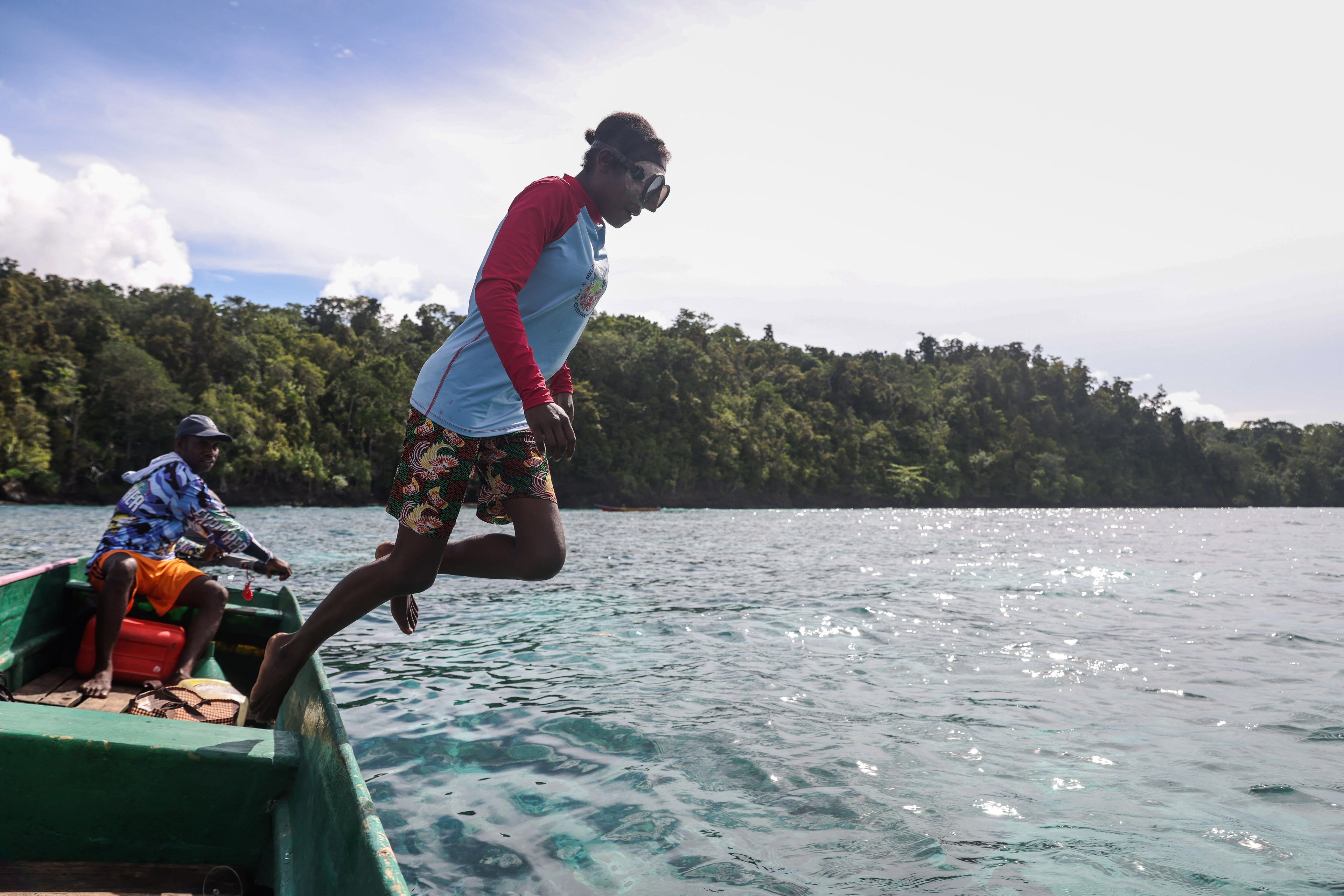
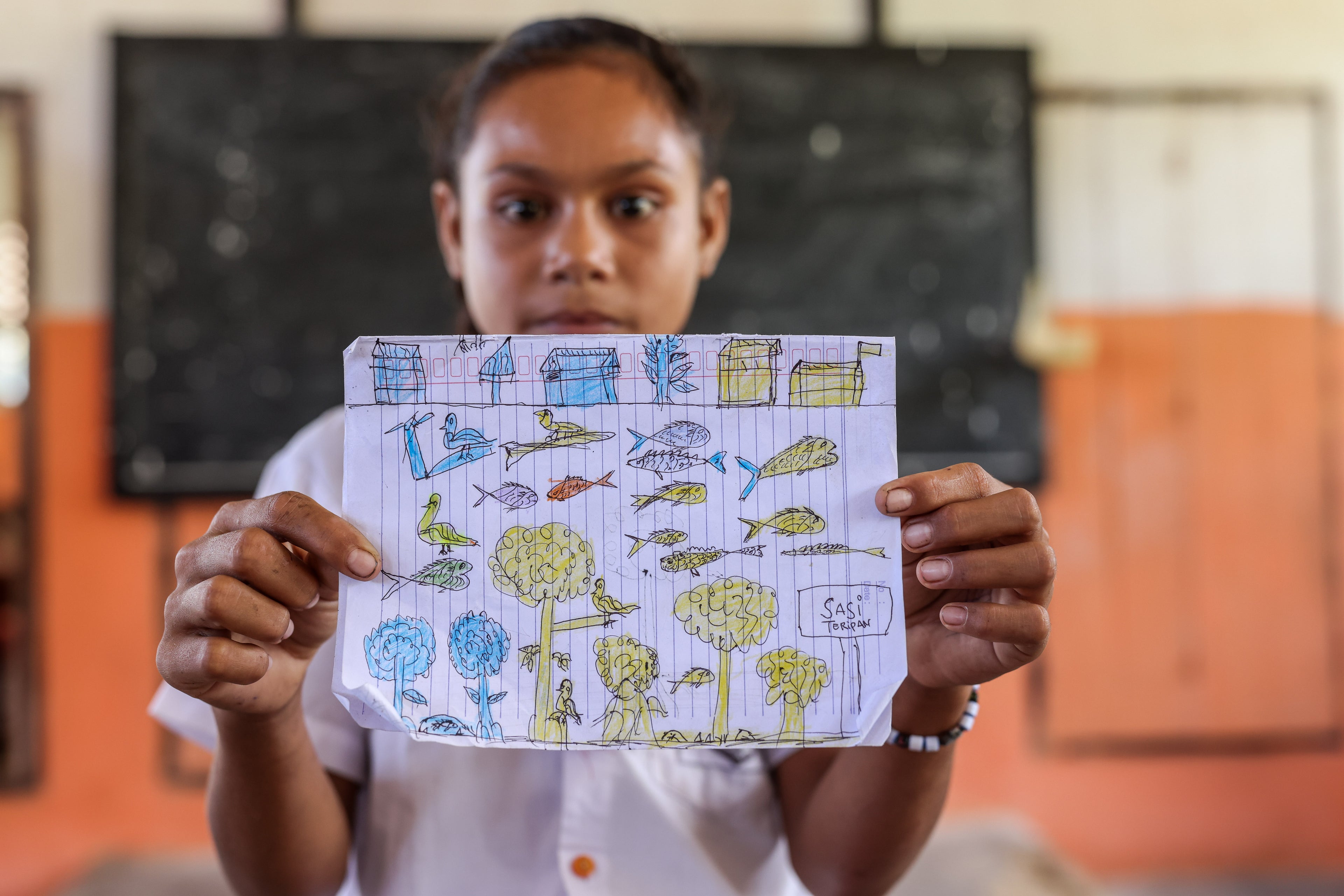
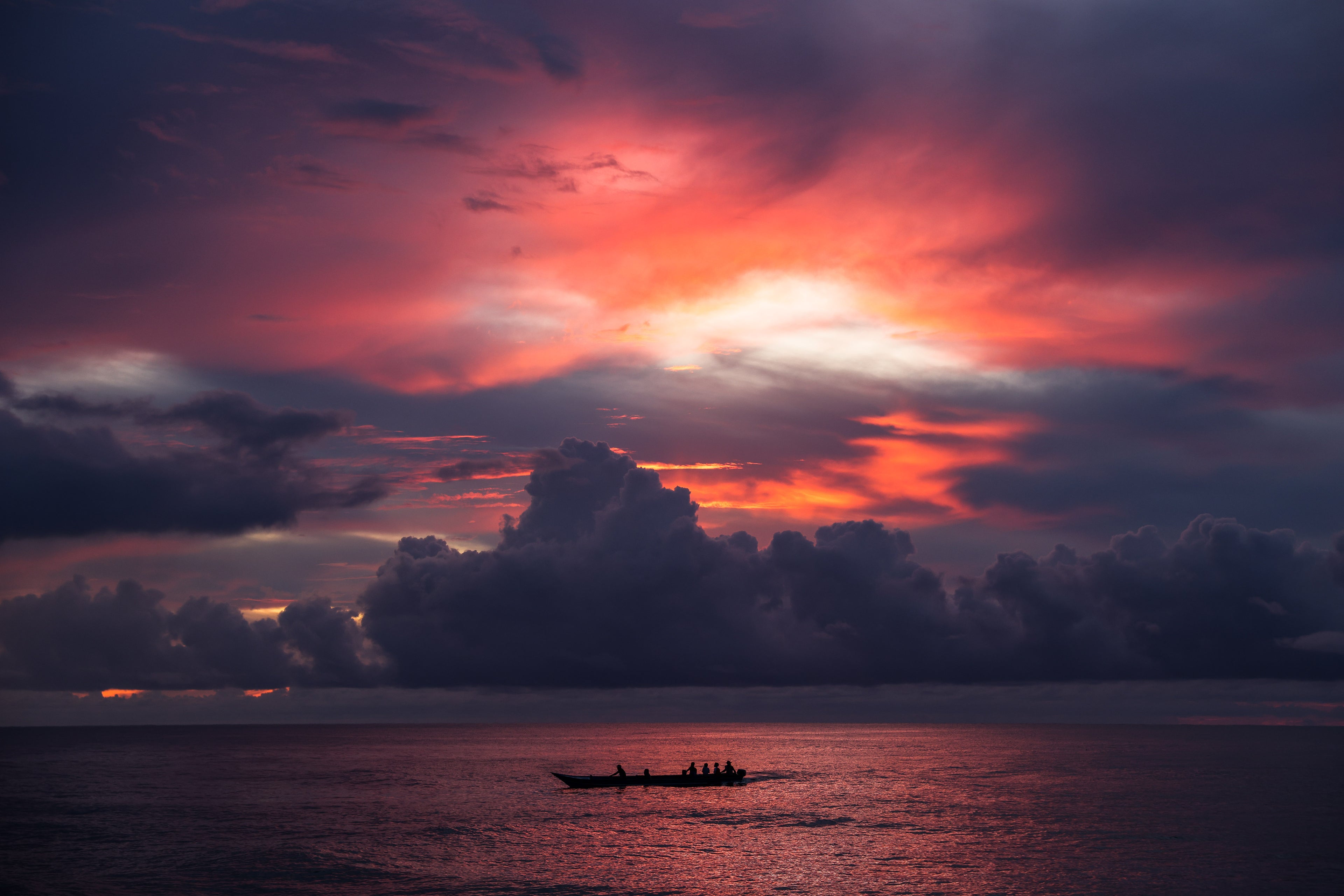
El equipo de Yolanda no era el único que navegaba por estas aguas. Había también varias embarcaciones más, cada una acompañada por un buzo y separadas a 30 metros de distancia. Los agricultores del océano recolectaron tantas criaturas marinas como les permitieron sus manos y pulmones, celebrando el primer día de la temporada de cosecha marina como parte de un ritual anual conocido como Sasi Laut.
Sasi Laut es una tradición común en el este de Indonesia, concretamente en las provincias de Maluku y Papúa Occidental. Se trata de un método establecido que consiste en cerrar ciertas zonas durante seis a doce meses para permitir que los ecosistemas se recuperen y crezcan de forma natural. Lo inusual ese día de marzo de 2022 eran las propias buceadoras. Al igual que Yolanda, las diez cazadoras submarinas que navegaban por las agitadas olas eran mujeres. Desde 2009, Waifuna, una organización única liderada por mujeres, ha liderado el Sasi del Mar, o Sasi Laut, en torno a Kampung Kapatcol, lo que marca un cambio significativo en las aguas indonesias, dominadas por los hombres. Lideradas por la abuela de Yolanda, Almina Kacili, las Waifuna se han convertido en las matriarcas del mar, protegiendo su hábitat marino de la sobrepesca y la mala gestión, a la vez que se aseguran de que prospere para las generaciones venideras.
Sumergiéndose una vez más, Yolanda se despejó de las responsabilidades terrestres, observando las porosas montañas de coral en busca de cualquier señal de movimiento. Bajo el agua se sentía ligera. Libre.
¿Quieres más Madres del Mar?
¡Lea el artículo completo en versión impresa! Añada el número 02 a su suscripción.
Suscripción
